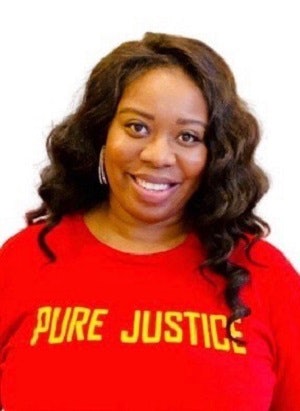 Sasha Legette
Sasha LegetteIn the aftermath of the George Floyd senseless murder by several Minneapolis police officers, protests have erupted in numerous cities both nationally and internationally. What could be different this time as compared to prior protests is that the movement to curb and check police power has reached an inflection point and change is coming. Based on our deep involvement and roles within the local Houston community, we offer suggestions and proposals that are applicable to any police department.
Continue to speak up: Local and national leaders in government must continue to speak up and denounce these types of brutal tactics used by the police such as chokeholds. Leaders also need to put in place legislation to change use of force among police as well as being creative with the doctrine of qualified immunity that continues to frustrate prosecutors who want to prosecute awful police misconduct.
Connect with the community more: The LAPD has a successful program known as the Community Safety Partnership and is considered a robust model for other police departments to mimic and improve. Community policing initiatives should be expanded upon.
Partner with local HBCU: At Texas Southern University, the Earl Carl Institute for Legal and Social Policy has worked on major initiatives such as the Justice Juvenile Project and the Innocence Project and has published numerous reports and publications. At Prairie View, President Ruth Simmons has initiated the creation of a Race and Justice Center on the HBCU campus. HBCUs are invaluable and necessary to the changes needed in police departments and are situated in a unique position to provide feedback and research.
Program Evaluation and Performance Measure: Focus on program evaluation and performance management with use of force incidents to decrease deaths and to promote and publish these evaluations and management through community meetings and the media to build trust in communities.
Shift tax dollars: Instead of defunding, shift those dollars to increased nonprofit involvement with police departments. In Houston, the Center for the Healing of Racism and Pure Justice are two nonprofits that have a diverse and proven history of workshops, panels, community organizing, criminal justice reform and activism. Police departments should partner and work with local nonprofits in order to bring about meaningful change for police brutality and unnecessary deaths.
Dr. Gautam Nayer is a professor at Texas Southern University and a board member of the Center for the Healing of Racism. Sasha Legette is the executive director of Pure Justice. Pure Justice is a criminal justice reform nonprofit located in Houston, Texas.


















